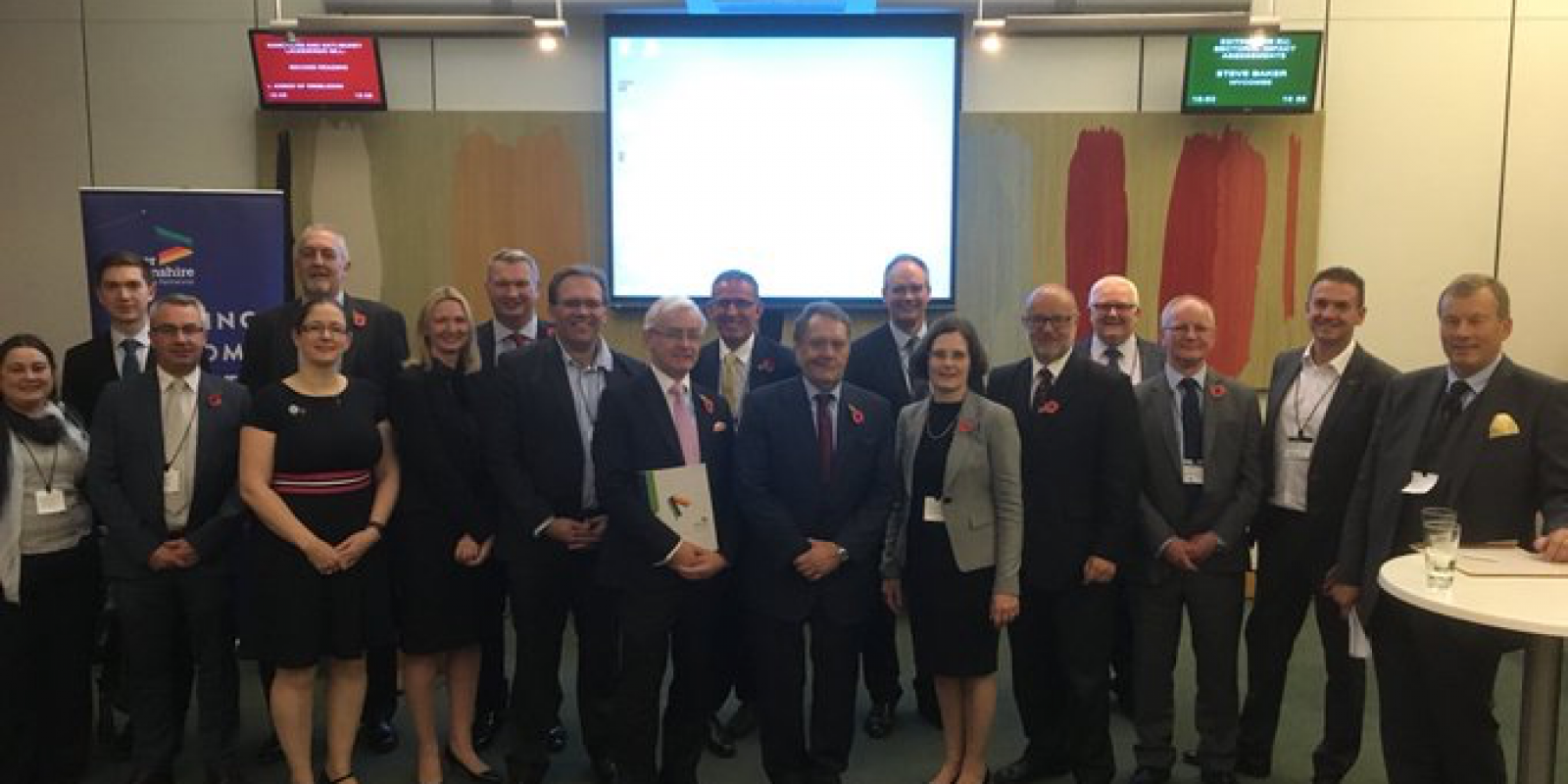Members of the LEP's Food Board met MPs and ministers at a House of Commons reception.
Brexit, labour supply and high-tech innovation in the food sector were all on the agenda last week (1st November) when politicians and business leaders met at the House of Commons to discuss the Greater Lincolnshire food industry.
Members of the Greater Lincolnshire Local Enterprise Partnership’s Food Board convened as guests of Rt Hon John Hayes MP, Transport Minister and MP for South Holland and The Deepings, and lobbied MPs about the needs of the area’s food sector.
Simon Dwyer of Seafox Management Consultants and Will Naylor from food firm Bakkavor spoke about future trading relationships in the context of Brexit; Simon Telfer of potato firm Branston and Steve Evans from fresh produce business Freshtime discussed labour supply; and Duncan Worth of QV Foods and Professor Simon Pearson from the University of Lincoln addressed innovation and future technologies such as automation and robotics.
The debate continued over dinner with John Hayes MP leading a discussion on transport and infrastructure. The debate was initiated by Robert Smith of Danish Crown and Simon Dwyer who explained why an efficient transport system is so essential to the food chain.
Mark Tinsley, Chairman of the Greater Lincolnshire LEP’s Food Board, said: “I believe this event was a great success with our key messages really beginning to have an impact.
“Competitive pressures are driving new business models in Lincolnshire’s food chain as much as anywhere and it’s important that we all work together to grow the food economy.
“Our food businesses do have concerns about trade and labour supply in the light of Brexit, but we are also being proactive in embracing industry-wide challenges, such as how to reduce waste, manage water supplies and improve efficiency.
“With more of its economy focused on food processing than any other area in the UK, Lincolnshire really can have influence if it works as a group on education, skills, careers, smart technology investment, employment and infrastructure.
“I hope that we have opened up a vital dialogue at a time of great change. We are confident that with the right policies we can continue to grow our food economy.”
John Hayes MP commented: “I was very proud to host the Food Board of the Greater Lincolnshire LEP for a reception in the House of Commons.
“We must of course continue to support farmers and growers with fair rewards for their work as food producers, guardians of the countryside and custodians of the natural environment.
“The first priority for our rural economy is to increase food production. We should grow and make here in the UK more of what we consume. A key to this lies in innovation and new technology. Put straightforwardly, the future of farming must be less labour-intensive. Once again, Lincolnshire is leading the way, both in industry and in academia.
“I am confident that we can look forward to sustainable, highly efficient and environmentally-conscious farming remaining at the beating heart of our local economy, and putting food on our tables for years to come.”
MPs who attended the reception were: Rt Hon John Hayes MP, Minister of State for Transport and MP for South Holland and the Deepings; Martin Vickers MP (Cleethorpes), Victoria Atkins MP (Louth and Horncastle), Matt Warman MP (Boston and Skegness), Karen Lee MP (Lincoln), and Dr Caroline Johnson MP (Sleaford and North Hykeham). Lord Taylor of Holbeach also attended the reception.
Greater Lincolnshire is the largest food producing region in the UK and over 30% of all UK food transport travels through or starts in Lincolnshire. In total the food chain provides 24% of Greater Lincolnshire’s jobs (13% nationally) and 21% of its economic output (7% nationally).
Greater Lincolnshire is the largest processor of fish with 70% of the UK market, produces over 25% of the potatoes and vegetables and is a major producer of processed food. It is also the largest UK producer of cereals, chickens, ducks, potatoes, vegetables, salads, flowers and bulbs.


